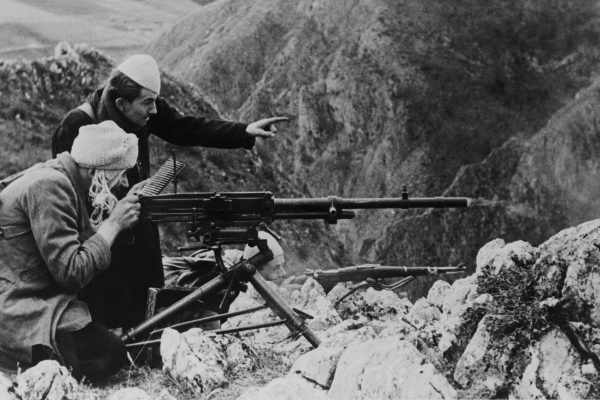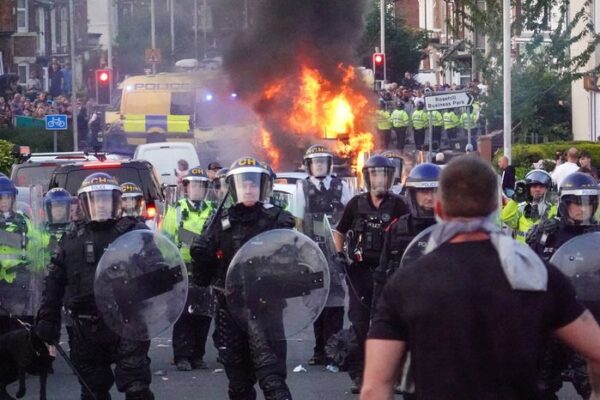Though this may prove to be a challenging few years for British Muslims, there is no time for us to mourn the result of the election. Now is the time for us to get organised.
Though this may prove to be a challenging few years for British Muslims, there is no time for us to mourn the result of the election. Now is the time for us to get organised.
Islamophobia hit the headlines over this election period, with multiple candidates having been found to have peddled Islamophobic tropes, engaged in outright Islamophobia or, in Boris Johnson’s case, refused to apologise for his long history of racist and offensive remarks.
What became clear over this period is that we’ve still not found a way to discuss or respond to Islamophobia beyond the interpersonal. When discussing Islamophobia, the conversation naturally directs towards hate crimes such as the record breaking numbers of attacks faced by Muslim women, or the often violent nature of these attacks. Videos of elders being harassed or mothers on the tram facing abuse have become not exceptional events in the age of social media, rather another day in the life of Muslims in Britain – and increasingly common since the election.
Alongside this, the government has finally released the name of the figure leading its watered-down inquiry into Islamophobia and prejudice in the Conservative party. True to form, the individual has been found to have peddled Islamophobia himself in the past. Swaran Singh, the appointed lead for the investigation, had unearthed a host of comments made including pieces he’d written for Spiked, whose editor has – in a recurring theme – dismissed Islamophobia as a made-up term to shut down criticism of Islam.
Within all of this lies the reluctance to engage with Islamophobia that extends further than a physical or verbal confrontation; and instead acts as something that demands concrete political responses, rather than mere emotive reaction. As Samayya Afzal from the Muslim Council of Britain puts it:
Islamophobia has a pervasive impact on the lives of Muslims across the UK, and the most detrimental impact by far comes at an institutional and structural level, where anti-Muslim policies permeate our political and civil landscape to exclude Muslims politically, socially and economically.”
Almost half of the British Muslim population reside in the bottom 10% local authority districts for deprivation. Although British Muslims are increasing in their numbers to continue in education, those who reach University are less likely to attain ‘good degrees’ in comparison to their non-Muslim peers. Within employment, only 1 in 5 Muslims are in full time employment compared with 35% for their white peers.
Within this, Muslim women face the triple penalty of being a woman, often of colour, and a Muslim when attempting to find employment. Within the NHS, people from all religions report experiencing discrimination on the basis of their faith, but reporting is by far the highest among Muslims. These are just some of the statistics that plague the lives of Muslims in the UK. Beyond this, we continue to see the hostile environment impact hugely on the lives of communities of colour, very much including many Muslim communities.
Yet it remains much more comfortable to recycle the conversation on hate crime – and even then, in a way that sidesteps the way in which politicians and press have only added fuel to in recent years. From Rod Liddle’s “stop them from voting” article in the spectator to Melanie Phillips’ Jewish Chronicle piece claiming Islamophobia is a made-up term, the election period and the time since it ended has seen Muslims very much in the firing eye for the pundit class.
Though this may prove to be a challenging few years for British Muslims, there is no time for us to mourn the result of the election. Now is the time for us to get organised.
The political challenges to come have been laid out in the new Tory Manifesto and yesterday’s Queen Speech. These span immigration laws that will impact all communities of colour, continued over-policing of our communities, and anti-BDS legislation which seeks to destroy efforts to stand in solidarity with Palestinians and voter ID laws which will disproportionately impact us at the ballot box.
The vast majority of Muslims in the UK are working class – we have to find support in our workplaces, so join a Union. For young Muslims in colleges and universities – discover ISOCs, Palestine Societies, Students’ Unions, NUS, and FOSIS and get politically active on the issues that matter to you. Discover organisations on the forefront of defending our civil liberties like CAGE, HHUGS and others.
For our masjids, inform your musallees and hold your local MPs and Councillors to account beyond a photo visit around election season. Write to them, meet them, and demand they ask questions of government ministers as to what actions are being taken to better the country for British Muslims and all of those who will suffer under the next 5 years.
At a time of difficulty, retreating within and into our communities out of fear is the response that the right would hope for, and the situation at hand calls on us to be braver than this. We have to work and be part of the broad alliance of anti-racists, trade unionists, and others who will be holding this government’s feet to the fire.
It is especially important that, at a time when our ability to be Muslim is under attack, we resist the urge to retreat into an Islam that is merely inward-looking – a hollow Islam that is only concerned with the maintenance of rituals disembodied from the realities facing Muslims today.
Ours must be an Islam that grapples with issues of the day, and also battles on the political, legal and juridical grounds that shape and determine how we are able to practice our faith.





